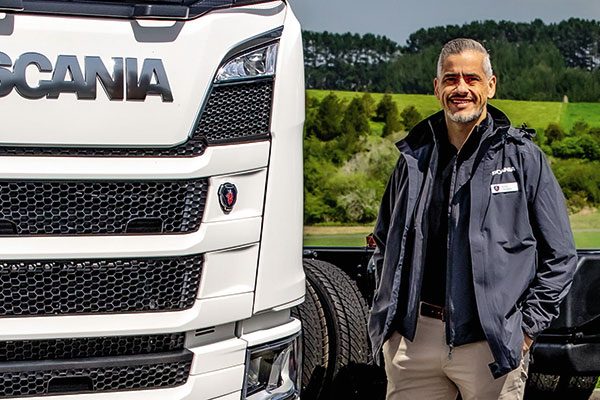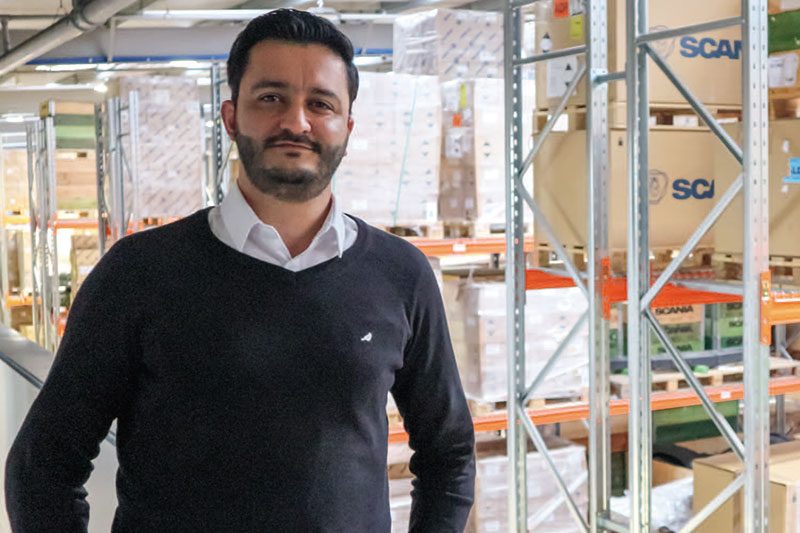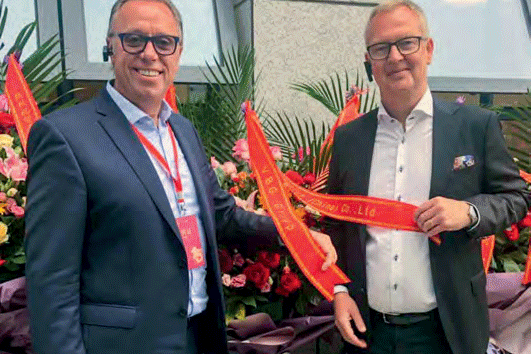Person of Interest – Transport industry is New Zealand‘s ‘good cholesterol‘
Road Transport Forum chief executive Nick Leggett has been in the role for more than a year now. Faye Lougher talks to him about how he‘s found his first year.
 Photo: Nick Leggett. His political career has taught him the importance of effective transport.
Photo: Nick Leggett. His political career has taught him the importance of effective transport.
Nick Leggett was just 19 when he was elected onto Porirua City Council, saying he wanted better representation for young people. When he won the Porirua mayoralty in 2010, he was the youngest mayor in New Zealand at that time. He served two terms as mayor before an unsuccessful bid for the Wellington mayoralty. His next job was as the executive director of the New Zealand Alcohol Beverages Council, an establishment role set up as a sensible voice for the alcohol industry. Those previous roles seem a world away from the transport industry, but Nick says he had been aware of the forum over the years, both in Tony Friedlander‘s day, and in Ken Shirley‘s. “Being a student of politics [he has a BA in political science], I knew who both of them were and I‘d followed their careers, but it was more the messaging they had around the importance of road freight to the New Zealand economy, the importance of roads to New Zealand Inc. that resonated,” he says. “In Porirua, probably for the whole of my local government career, Transmission Gully had been on the horizon and it had started construction by the time I left, so I had a growing appreciation.
“I also had some small involvement in issues like the Kapiti Expressway. I suppose I saw an alignment with the forum and felt that being an advocate for road freight was something that was aligned to what I believed in and I thought I could add some value to the industry as well.” Nick says before he starts a job he always imagines what it‘s going to be like, and he‘s found the reality of his role with the RTF stimulating and challenging. “It‘s all I‘d hoped for and a bit more in the sense that there are issues that the industry has to grapple with itself, things around workforce and change and technology, that are coming our way. We do have to confront this and make changes, but the whole environment for road freight and for business generally is a bit more challenging in this political climate. “Some of that will force change, but some of it requires the case for road transport to be put effectively, not just to politicians and officials, but also to the New Zealand public. What I‘ve discovered is that people do understand when it‘s pointed out to them that trucks carry our economy. Most of the things we enjoy in our lives, like food and household goods, and well – basically everything that keeps our lives going – comes on the back of a truck.” Nick says in today‘s world, the RTF needs to represent the interests of road freight transport operators and deliver the tailored kind of advice they need to run their businesses effectively.
“The role of the forum is to provide the voice of the industry, to the media, to the politicians, and to the bureaucracy. And our role is to show principled leadership on issues around regulation and policy for the industry as a whole, and to engage with the regulator – or regulators – on behalf of the industry.” The challenge, Nick believes, is for the forum to align the interests of the industry with those of the public, because they aren‘t mutually exclusive. Nick says the Labour Government has the view of transport as being broader than just highways, and that‘s a fair position to take. “But I think Kiwis want to be able to move around as quickly as possible and we know that freight needs to be able to move between regions and cities and from gate to market as quickly and as efficiently as possible. “It‘s not just one or the other [road or rail] and it really is pie in the sky to believe that freight is going to be moved significantly by anything other than road in a country with our topography,” he says. “It is a challenge to push those things, but it‘s about the industry recognising that the government has priorities and that we respect significant aspects of their agenda, but we disagree with others.”
Nick says the standard of roading in New Zealand is an issue that affects everyone, not just those in the industry. “Good roading is an investment. New Zealanders want to be assured that the expertise exists in the NZ Transport Agency around how to build roads with the right quality, design, materials and oversight, and that the agency and local authorities have the right kind of budgets and the right kind of expertise to carry out maintenance. Roading has to remain a priority and I think there is general concern among a lot of New Zealanders that roading is run down, and the maintenance has not been done. “There are challenges there. Initially it‘s about understanding – why do we want good roads? It‘s not just for the sake of it, it‘s because they are the means to an end. They help New Zealanders get around safely and do what they need to do in their lives. They help us stock supermarket shelves and ensure that the stuff we buy online gets to us as quickly as possible.
As I‘ve often said, trucking and roading is the good cholesterol in the New Zealand economy – it moves things around. And when it‘s working well, New Zealand does well.” On the subject of the upcoming referendum on decriminalisation of marijuana, Nick says that when the government talks about their number one priority being safety, the industry wants to see consistency around that. “What we‘re saying as an industry is that we‘re forced to assess our staff for drug use, but if the government cares about safety, we want to see that applied to everyone driving a vehicle in New Zealand. There has to be some kind of impairment testing regime in place, an accurate one, and if one doesn‘t exist at the moment, let‘s develop one. More of the people who died on the roads in the past two years had drugs, rather than alcohol, in their system. So to say it‘s not a problem is really brushing it under the carpet.”
Telling the stories of those in the industry is something Nick is passionate about. “Truck driving does require dedication and skill, and it‘s doing something that is essential for all New Zealanders to be able to live well. They‘re driving big expensive machines that people take a risk investing in, and providing a really important commercial service. I feel really privileged to be chosen to represent the industry and it‘s important to me that I do that very well, and that I‘m effective in telling that story.” While government and industry training organisation initiatives to solve the growing labour shortage in the transport industry are welcomed, Nick feels individual employers are the key. “I think the answer is individual employers working out how they can do things differently and orientating their businesses to employ young people. Taking a chance on them, developing young people, having a commitment to developing their skills and qualifications, and continuing to do that. “I‘m not talking about some futuristic thing that doesn‘t exist; I see and talk to road transport operators who are doing that every day of the week, and what‘s more, they have a commitment to paying decent wages.
Interestingly enough, those operators don‘t have workforce shortages.” Nick says part of this is a culture change. He‘s been involved previously with schemes that employ young people, and says the change that‘s needed is so often with employers, not with employees. “We want to put our best foot forward as an industry because we know we need drivers and dispatchers and the people who do all aspects of the industry. We‘re in a competitive market for labour and the RTF‘s role is to give willing employers the tools to do that.” After being in the role for more than a year, Nick says the road transport industry is a great industry to be involved with. “It‘s got great people who perform a really important service for New Zealand. I‘m excited about helping them make their businesses operate more effectively and more efficiently, to tell their story about what it is they do, and to attract people to come and work in the industry.”
Read more
People and purpose
0 Comments14 Minutes
A new normal
0 Comments9 Minutes
Faithful following
0 Comments10 Minutes
Fitting right in!
0 Comments16 Minutes





